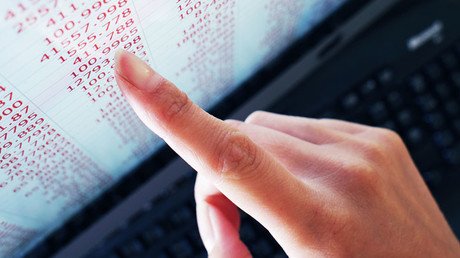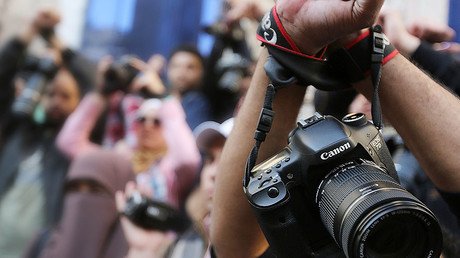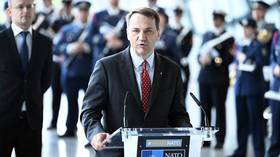‘You don’t expect this in a democracy,’ man wrongly put on Thomson Reuters ‘terrorist’ list tells RT
A British-Palestinian academic and activist spoke to RT about the ordeal he endured while his name was featured on the World-Check database, which is owned by Thomson Reuters and used by banks to blacklist customers.
Azzam Tamimi told RT that he was completely unaware as to why his personal, business, and even family accounts were frozen, before he was contacted by a journalist who told him that his name was on the secretive World-Check database, which helps financial institutions make sure they are not inadvertently aiding and abetting terrorists.
Last February, Vice Magazine revealed that a number of decorated civil rights activists, prominent religious leaders, and politicians were included on the long list of individuals and organizations – drawn up from often questionable and highly partisan open sources. As a result, their accounts were disabled by the banks that were clients of the service.
“Until that moment I had no idea why my bank accounts were closed down in three banks,” Tamimi told RT, recalling that he felt distressed at the thought of being punished by some non-state actor for deeds he had not committed.
“This is not even the United Nations, this is not a government and living in a democracy like Britain you don’t expect something like this to happen,” he said, arguing that the practice is illegal as it goes against the presumption of innocence.
“If you are not a criminal and there’s nothing against you legally, then you should not be prescribed, you should not be alienated, you should not be excluded and denied essential services,” Tamimi said, adding that he hired lawyers to investigate.
Tamimi admitted that he at first thought the government was to blame for his financial problems, as he has always been an outspoken critic of the UK’s involvement in the Iraq War and has voiced support for the Palestinian cause.
After ruling out this possibility through contacts he had in some of the departments, Tamimi exhausted all options and decided to contact World-Check directly. However, he believes that it was only the threat of legal action that forced database employees to acknowledge their wrongdoing.
“Initially they said ‘no,’ my name was not on the list, then I send another message saying – are you sure my name is not on the list? – and I think here they felt that if they did not tell the truth they might be liable to prosecution so they admitted that had a profile on me as early as 2003.”
Thomson Reuters subsequently apologized for including him in the database without any grounds, and provided him with “a symbolic compensation,” as well as covering his legal costs.
The practice of private institutions acting as universal gendarmes with no credentials while relying on one-sided, untrustworthy media reports is “very dangerous,” Tamimi says.
“They have no right to collect information from websites, left and right, many of these websites are not authentic, not credible,” he said, calling on governments and civil society to step up efforts to make them accountable for such “mistakes.”
“I think governments should step in, I think there should be legislation preventing them from doing this, and I call on civil society institutions to bring pressure on Reuters to close World-Check completely.”














